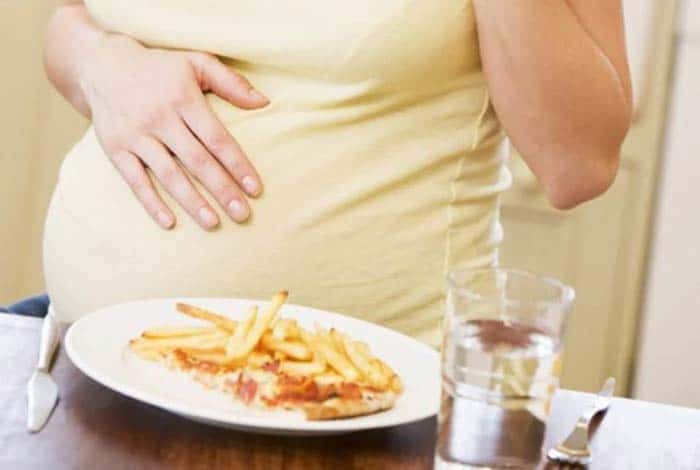
Does Fast Food Reduce Your Chances Of Getting Pregnant?

According to a study, women, who are frequent fast-food eaters, but do not eat fruits, are more likely to face issues related to conceiving.
The study was conducted on 5,598 women and the results indicated that the women, who consumed fast foods more than 4 times a week got pregnant by about a month later than those , who rarely or never consumed such foods. Also, the likelihood of conceiving within a year is less in those, who regularly ate junk foods.
These results of the study have been published in Human Reproduction. Experts say that a healthy diet increases the chances of pregnancy. The scope of the study is limited as it is based on recalling by the women what they had eaten during pregnancy.
Women across regions were questioned about what exactly they ate during the months before conceiving. The study examined the diets of women from Australia, UK and New Zealand.
When the women were pregnant by 4-5 months, midwives asked them how often they ate green vegetables, fruits, and fish and also junk foods like pizza, burger, chips from fast-food outlets.
It was found by the researchers that the women, who ate fruits three or more times a day, took around half a month lesser to get pregnant as compared to those, who consumed it less than three times a day.
Also, it was found that the women, whose consumption of fruit was lowest, had 12% more risk of not being able to conceive in a year. This risk was 16% for those, who ate fast foods more than 4 times a week.
Those couples, wherein the male partners were seeking fertility treatments, were not included in this study. Prof. Claire Roberts of the University of Adelaide said that eating a diet rich in fruits and devoid of fast foods helps improve fertility and reduce the time to get pregnant.
The researchers did find an association between the consumption of fast food fruits and the time taken to get pregnant, but the study cannot be extended to vegetables and fish. The research was done on a large scale, but it focused only a limited number of foods items. Moreover, no information was collected regarding the diet of the fathers and several other factors were also not considered that could have affected the results.
However, the fact that the diet of women before pregnancy has an impact on conceiving cannot be overlooked. Dr. Gino, lecturer at the University of Queensland, opines that the study complies with what most people would naturally believe that having a healthy diet is great for those, who are trying to conceive.





